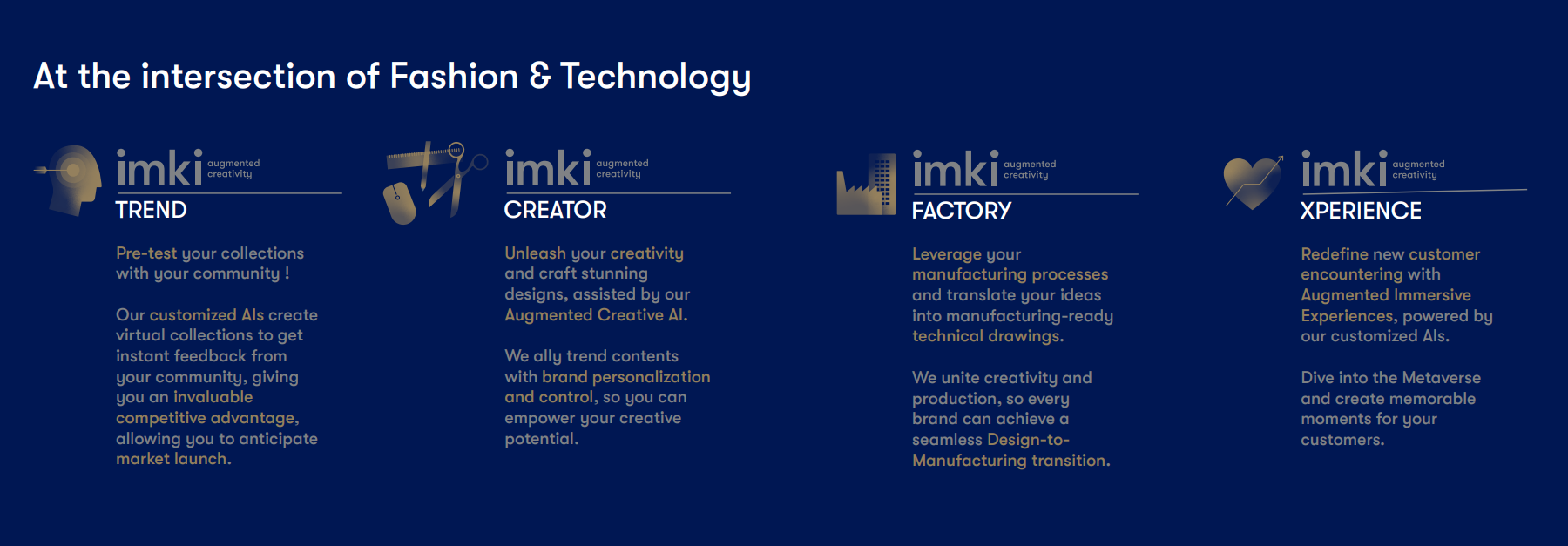With 1.2 billion tons of CO2 emissions, the textile industry is the world's 2nd most polluting industry. Imki aims at reducing the negative environment impact of creation, training and use of artificial intelligence.
Directly
imki as an AI solution provider is committed to limit the impact of these AIs on the environment.
Using green energy sources. By using renewable energy to power our data centers, we directly reduce our CO2 emissions. imki has its own AI training and hosting servers, guaranteeing green energy sourcing.
Carbon offsetting. We participate in carbon offset projects, such as reforestation or carbon capture projects, to neutralize as much as possible greenhouse gas emissions.
Indirectly
Indirectly, the use of our specific AIs has led to significant reductions in polluting emissions for our customers.
Our AIs, via our imki Trend offer, can help identify trends and preferences in your community, with greater precision, enabling you to produce quantities more in line with real market needs. This helps reducing overproduction and thus reduces wastage.
Improved Design Efficiency: With imki Creator, our creative AI offering, we speed up the design process by quickly generating design options, reducing the time and resources needed to develop new collections.
Reduction of Prototyping efforts: Thanks to imki Factory; by using our AI to create virtual prototypes of garments and textile patterns, we reduce the need to produce multiple physical samples.


